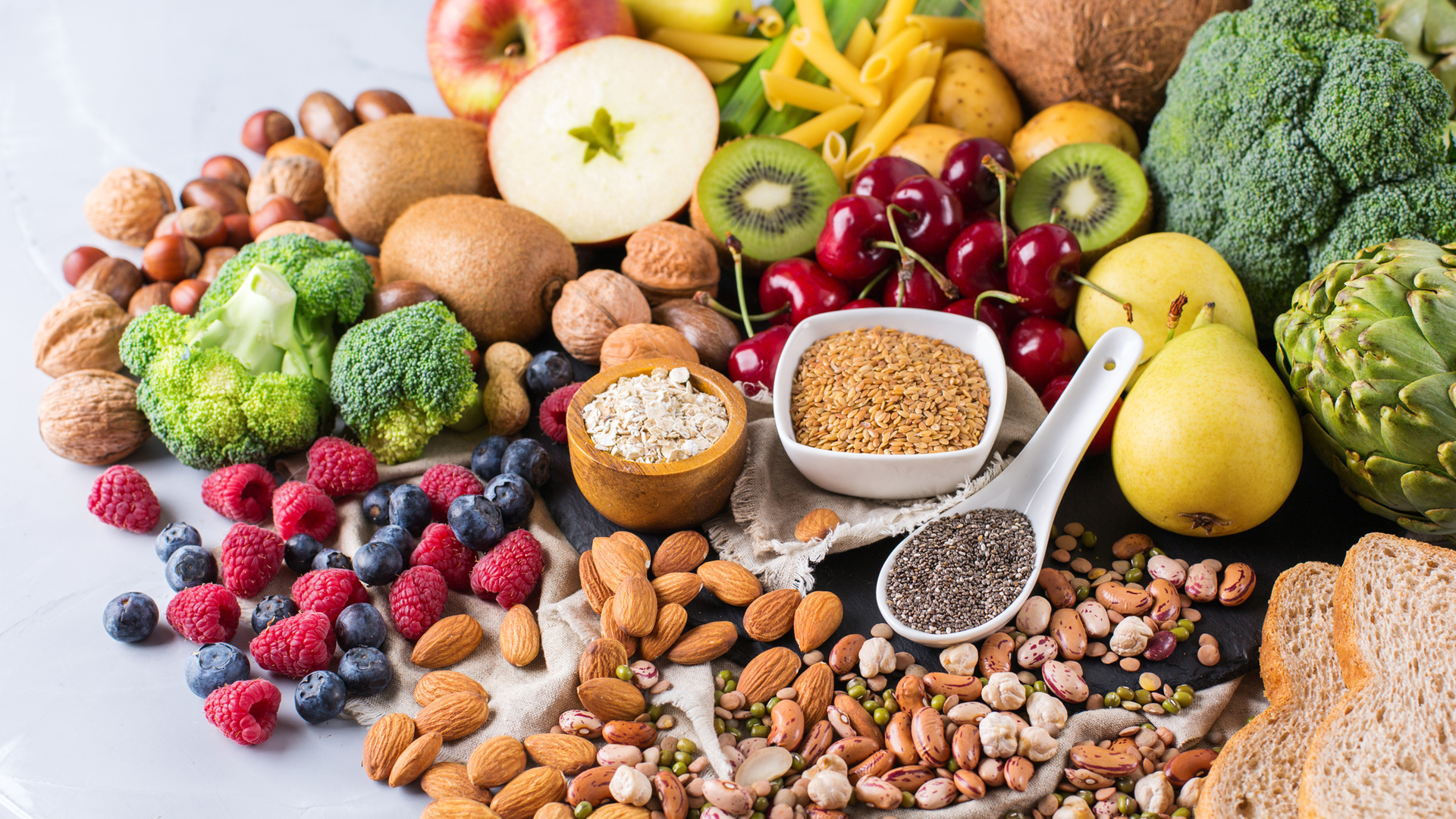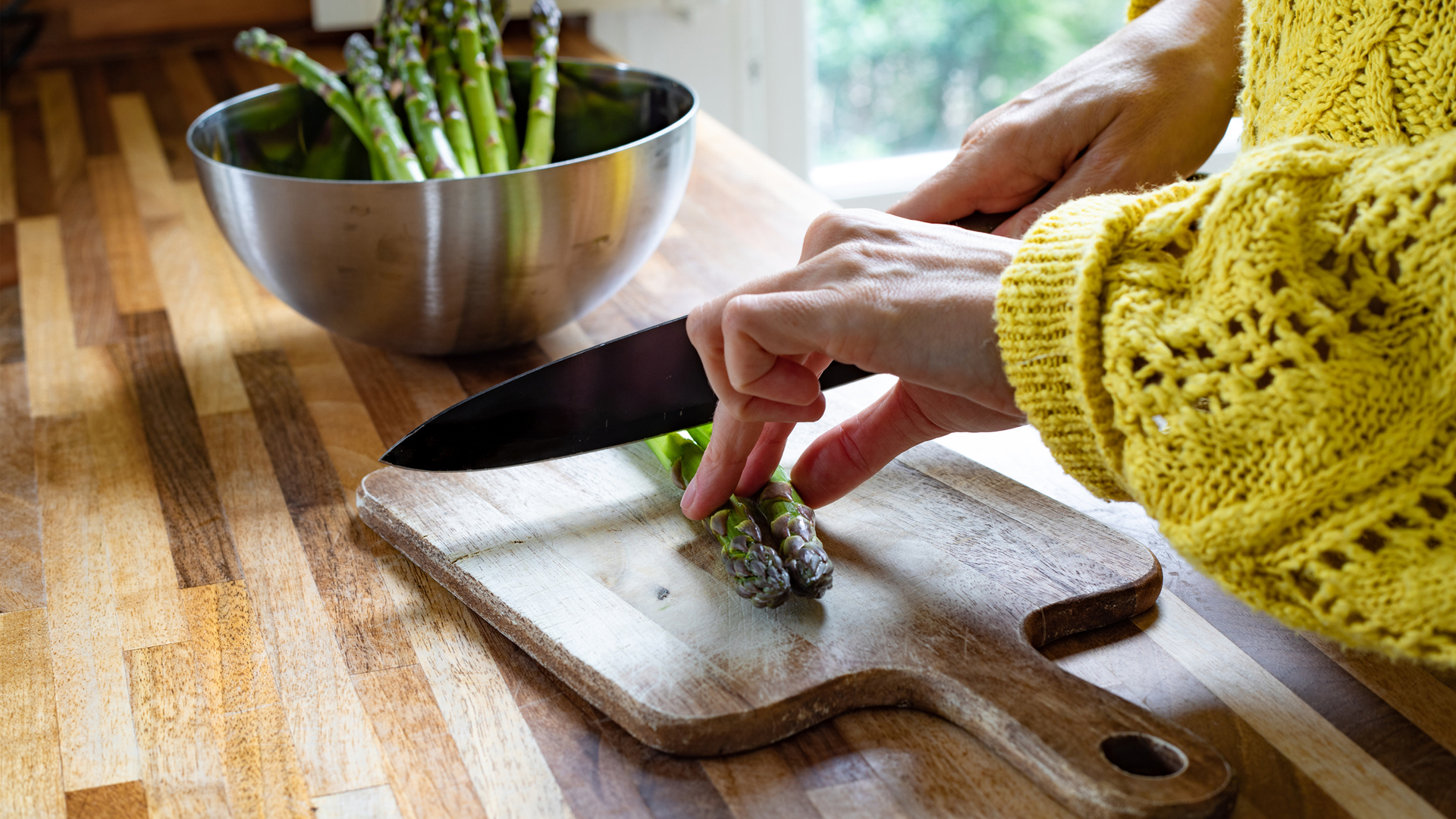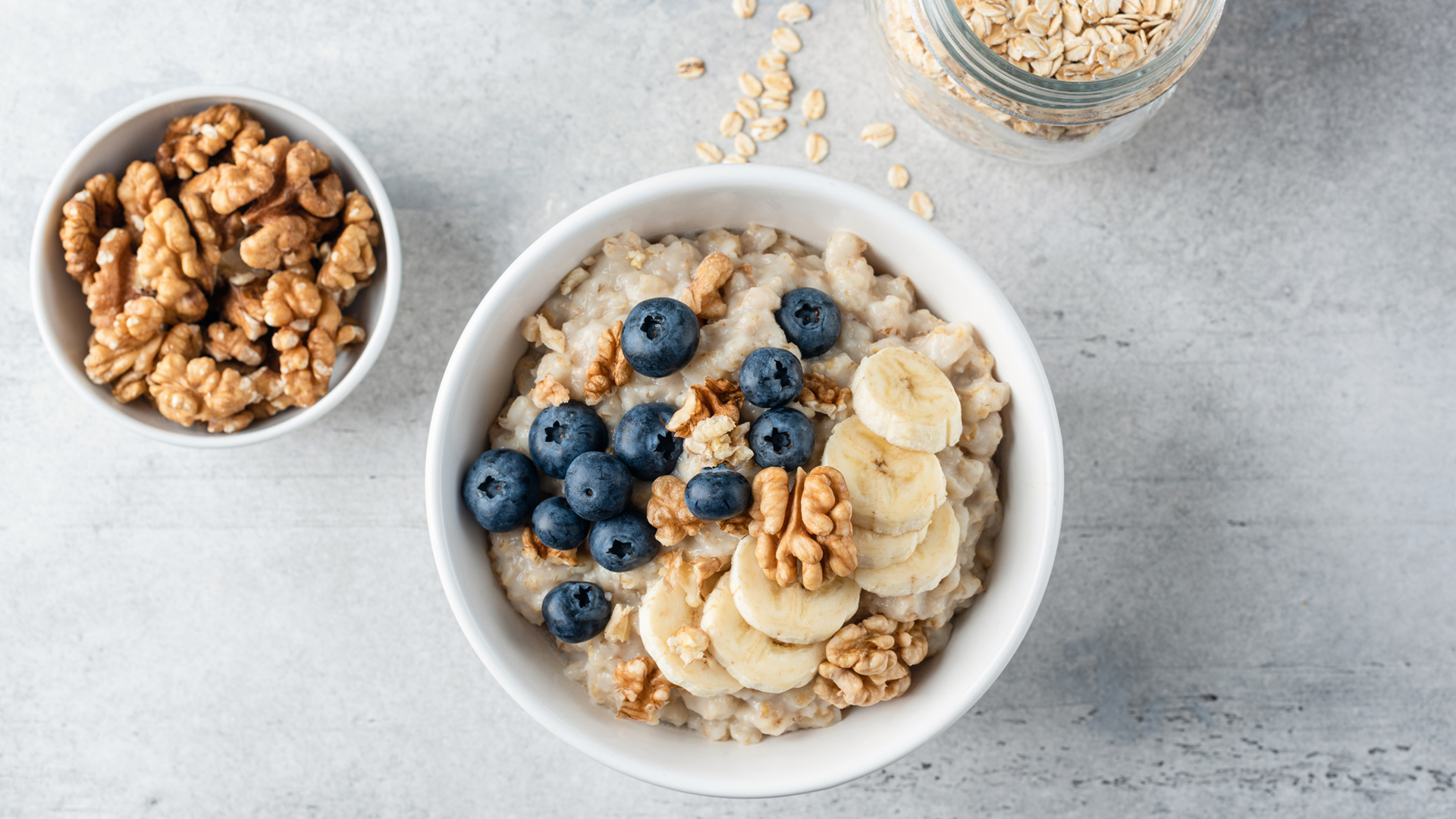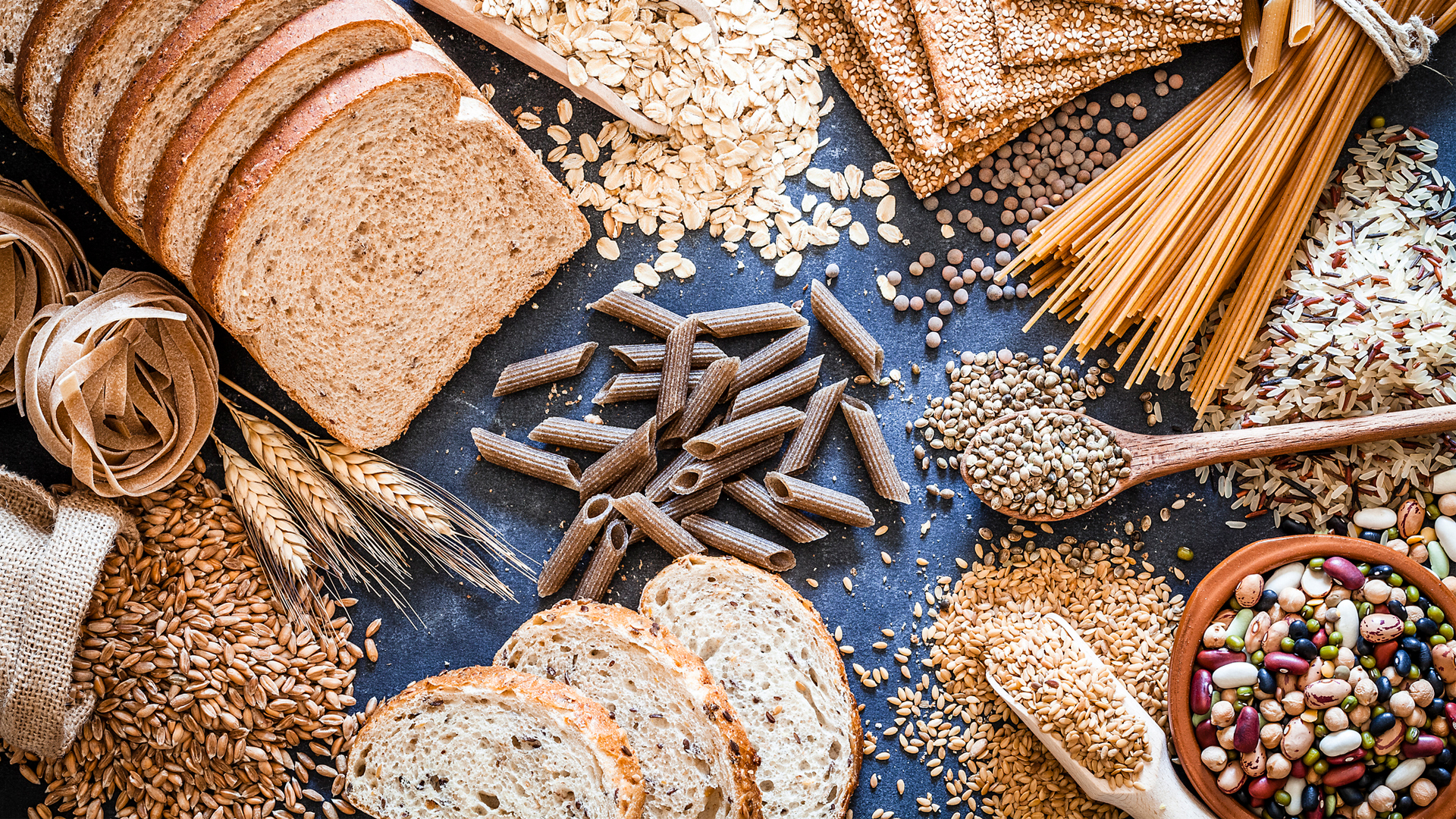Is fiber good for weight loss?
We ask the experts how upping your fiber intake could be good for weight loss

Get the world’s most fascinating discoveries delivered straight to your inbox.
You are now subscribed
Your newsletter sign-up was successful
Want to add more newsletters?

Delivered Daily
Daily Newsletter
Sign up for the latest discoveries, groundbreaking research and fascinating breakthroughs that impact you and the wider world direct to your inbox.

Once a week
Life's Little Mysteries
Feed your curiosity with an exclusive mystery every week, solved with science and delivered direct to your inbox before it's seen anywhere else.

Once a week
How It Works
Sign up to our free science & technology newsletter for your weekly fix of fascinating articles, quick quizzes, amazing images, and more

Delivered daily
Space.com Newsletter
Breaking space news, the latest updates on rocket launches, skywatching events and more!

Once a month
Watch This Space
Sign up to our monthly entertainment newsletter to keep up with all our coverage of the latest sci-fi and space movies, tv shows, games and books.

Once a week
Night Sky This Week
Discover this week's must-see night sky events, moon phases, and stunning astrophotos. Sign up for our skywatching newsletter and explore the universe with us!
Join the club
Get full access to premium articles, exclusive features and a growing list of member rewards.
Is fiber good for weight loss? According to registered dietitian Monique Richard, yes. This is because it is extremely filling while being low in calories, which can help you if you are keeping an eye on your food intake.
“Fiber is the carbohydrate or starch our body can’t easily digest,” explains Richard, a spokesperson for the Academy of Nutrition and Dietetics and owner of Nutrition-In-Sight. “It can help us feel fuller, slow us down by taking longer to chew, possibly reduce how much we eat, promote good bacteria in our digestive tract, as well as keep us regular.”
Gut bacteria can also impact how we digest food, how fat is stored and whether we feel full or hungry, so boosting digestive health with the best probiotic could be another way to aid weight loss. The best smart scales can also be helpful to track your progress, with high-tech insights into body composition.
Richard adds: “Because fiber is in fruits, vegetables and plants, fiber-rich foods tend to be naturally lower in calories and higher in other beneficial nutrients.”
In this article we speak more to Richard and registered dietitians Caroline Susie and Holly Larson to find out how exactly fiber is good for weight loss.
What is fiber?
Fiber is an essential nutrient found in plant foods. However, many Americans fall short of the recommended daily amount in their diets. According to Richard, it’s recommended to consume 20-35g of fiber a day, or more in some cases, in addition to plenty of water. An excess of fiber without adequate hydration can cause gastrointestinal distress, such as bloating, cramping, gas, constipation or diarrhea.

Monique Richard is a licensed dietitian and nutritionist with a Master of Science degree in Clinical Nutrition and minor in Psychology. She is a National Media Spokesperson for the Academy of Nutrition and Dietetics and the owner of Nutrition-In-Sight in Johnson City, where she offers nutrition communication, counseling and consulting services.
Dietary fiber is important for health in various ways. It helps us feel full, which can contribute to weight loss and weight management, and eating enough of it could even lower cholesterol, according to a meta analysis in the American Journal of Clinical Nutrition.
Get the world’s most fascinating discoveries delivered straight to your inbox.
The research found that some soluble fibers helped to reduce total and LDL cholesterol (the ‘bad’ type that raises your risk of heart disease and stroke) by similar amounts. A fiber-rich diet can also prevent constipation and regulate blood sugar levels.
There are two main types of dietary fiber – insoluble and soluble. “Insoluble fiber, which you’ll find in the stringy part of celery and parts of plants like the skin or pulp, bulks up the stool, supports bowel movements and ‘sweeps’ out the gut,” says Richard.
“Soluble fiber absorbs water, and expands similar to a sponge, slowing digestion, binding with cholesterol and may help firm the stool. Think oats, dried beans, barley apples, potatoes and berries. Most foods contain both types of fiber in varying amounts.”
Is fiber good for weight loss?
At the most basic level, to lose weight you need to be in a calorie deficit (burning more calories than you use), but eating fiber-rich foods could help with this because they require more chewing and increase satiety (the feeling of fullness). So if you feel full sooner, you are less likely to overeat and it may even decrease your calorie intake, potentially helping you lose weight without even thinking about it, says Richard.

In fact a 2015 study found that eating just 30g of fiber a day — without making any other significant dietary changes — could help with ‘significant weight loss’.
Other research published in the International Journal of Food Sciences and Nutrition suggests that a certain type of fiber — called viscous fiber — can actually suppress appetite. This is a soluble fiber that forms a gel and can bind cholesterol in your gut so it can’t be absorbed.
You can find viscous fiber in apricots, beans, asparagus, oats, Brussels sprouts and sweet potatoes. By adding these foods to your diet you could end up eating less without noticing, which in turn could help with weight loss.
How can you get enough fiber from your diet?
Fiber is found in plant foods so that’s why a vegan diet can also be good for weight loss. If you eat the skin or peel of fruit and vegetables you’ll get a bigger hit, as it’s naturally found in these sources. It is also commonly found in beans, lentils, nuts, seeds and wholegrains such as brown rice and oatmeal, which contain the fiber-rich outer bran layer.
Fiber-rich foods aren’t just good for weight loss. There is strong evidence to suggest that eating plenty of fiber is associated with a lower risk of heart disease, stroke, type 2 diabetes and bowel cancer.
- Related: Vegan diet for weight loss

Registered dietitian Caroline Susie, a spokesperson for the Academy of Nutrition and Dietetics, told Live Science: “People who consume a high fiber diet tend to see a reduction in their appetite because it is so filling. High fiber choices include fresh fruits, vegetables, whole grains (barley, millet, amaranth, farro, and brown rice), oats, nuts and beans.
“Snack on raw almonds or add some flaxseeds or chia seeds to your cereals. Add veggies at every meal. Side salads, crudite, sneak veggies into your soups/chilis/stews and casseroles. Raw veggies are also a great snack.”

Caroline Susie is a principal at Mercer, a global health consulting firm, and a member of the company's Total Health Management Team where she leads the Nutrition and Weight Management Vertical. She is a former president of the Oklahoma City District Dietetic Association and a graduate of the University of Oklahoma, Health Sciences Center.
Here are some more easy ways to increase your fiber intake:
- Choose a high fiber breakfast such as plain wholewheat biscuits, plain shredded whole grain cereal, or steel cut oats with nuts and berries
- Opt for wholemeal or granary breads, and wholewheat pasta, bulgar wheat or brown rice
- Have a lunch wrap in a whole grain tortilla
- Keep skins on potatoes
- Consume more fresh and dried fruit, or have canned fruits for dessert
- Snack on oatcakes, unsalted nuts, seeds, vegetable crudités and fresh fruit with the skin on

However, registered dietitian Holly Larson, owner of Holly Larson and Co.,also says to bear in mind that you want to increase your fiber intake gradually and with plenty of fluids.
“As dietary fiber travels through the digestive tract, it is similar to a new sponge; it needs water to plump up and pass smoothly,” she explains. “If you consume more than your usual intake of fiber but not enough fluid, you may experience nausea or constipation.
“Before you reach for the fiber supplements, consider this: fiber is found naturally in nutritious foods. Studies have found the same benefits, such as a feeling of fullness, may not result from fiber supplements or from fiber-enriched foods. If you're missing out on your daily amount of fiber, you may be trailing in other essential nutrients as well.
“Your fiber intake is a good gauge for overall diet quality. Try to reach your fiber goal with unrefined foods so you get all the other benefits they provide as well.”
This article is for informational purposes only and is not meant to offer medical advice.

Maddy Biddulph is a freelance health and fitness journalist with over 26 years of experience working for consumer media in the US and UK. As a Level 3 personal trainer and weight loss advisor she is used to trying out and reviewing the latest health and fitness products. At Maddy Biddulph Personal Training, she runs one-to-one and small group sessions, as well as group exercise classes. She specializes in mobility work with seniors and runs regular chair workouts in her hometown of Oxford.
 Live Science Plus
Live Science Plus










